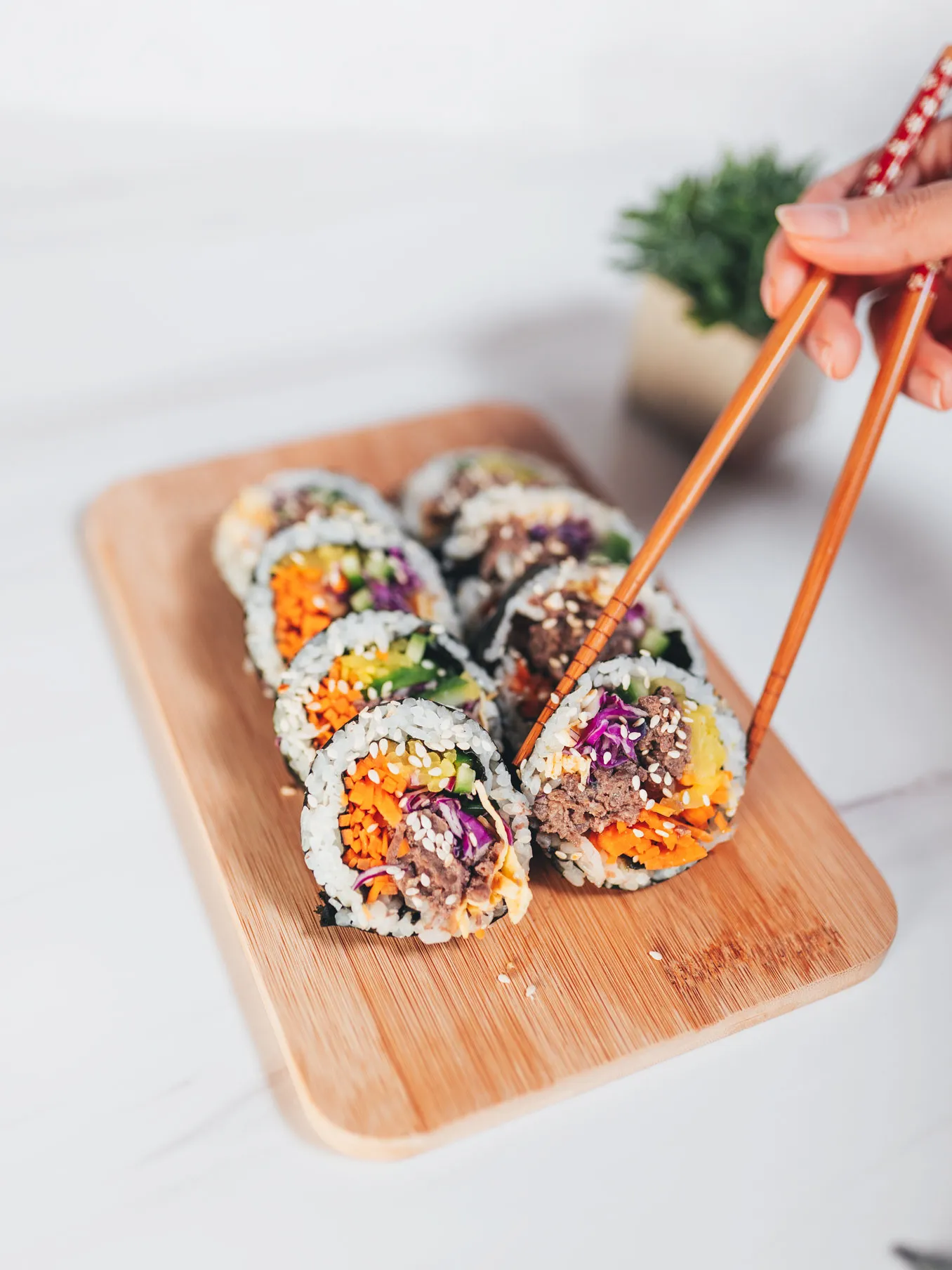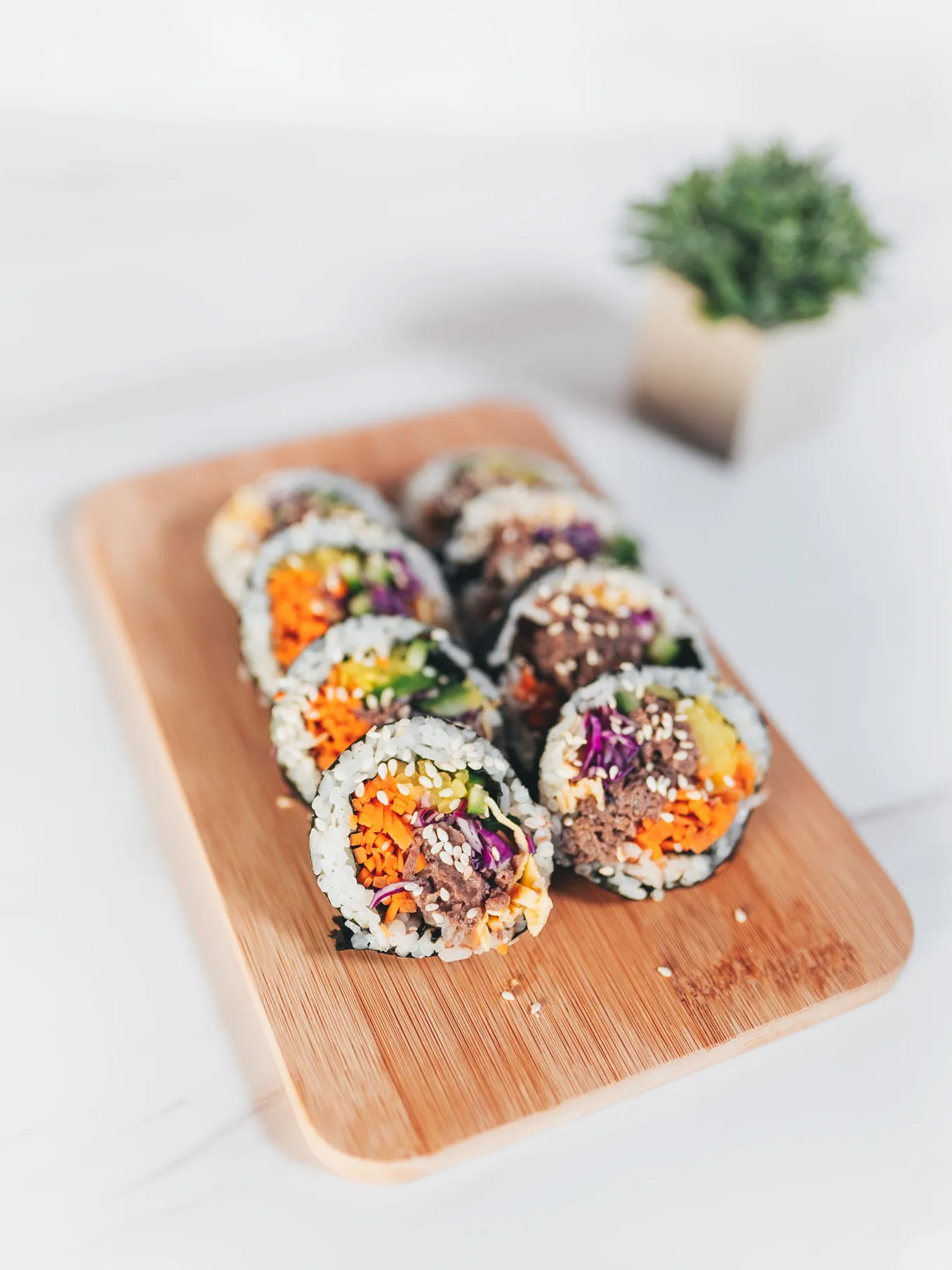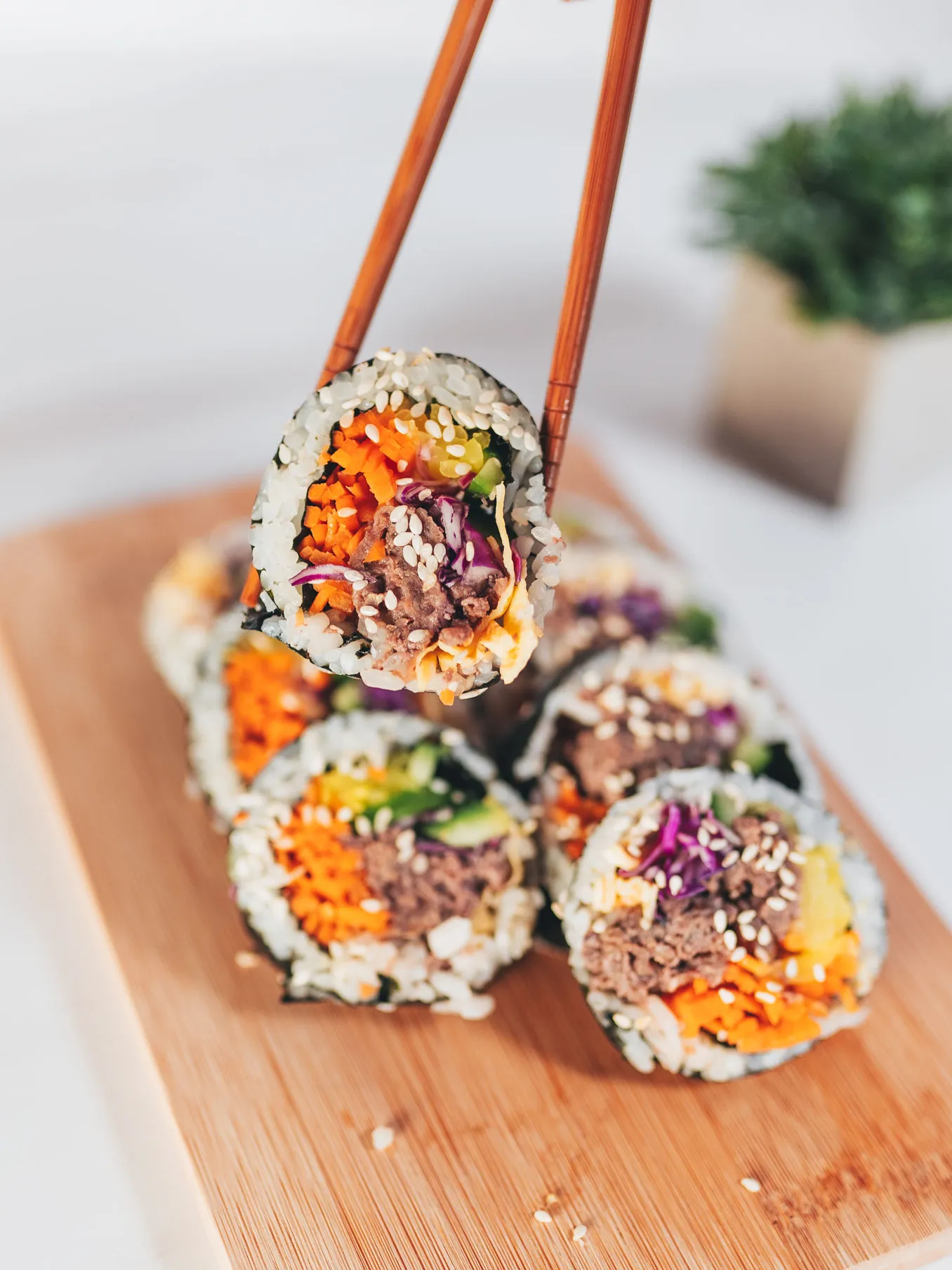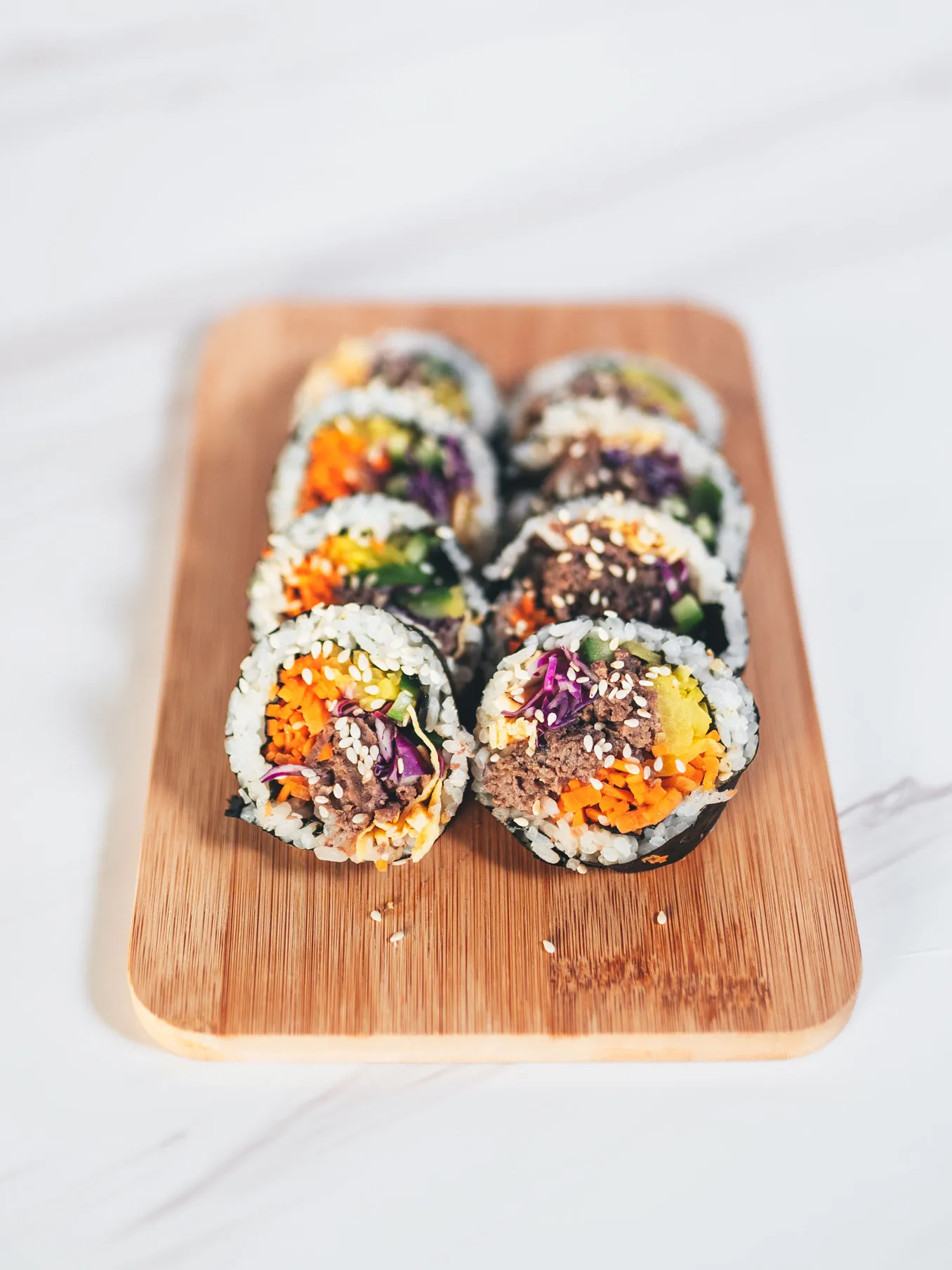Gimbap are Korean seaweed rice rolls that look like sushi but are nothing like it! The rice is seasoned with sesame oil and the fillings usually include a variety of meat, vegetables, egg and sometimes cheese. This is a version with bulgogi beef. It's delicious and the perfect finger food for your lunch box or a picnic!
Prep Time
30 mins
Cooking Time
10 mins

Ingredients
Servings
2
Gimbap
Bulgogi beef
Instructions
Make omelette strips
- In a bowl, beat eggs with a pinch of salt.
- Heat up a non-stick skillet over low heat. Add beaten eggs to skillet and let it cook into a thin, flat omelette. When it's almost completely set, flip and cook the other side for 30-40 seconds.
- Remove omelette from heat. Let cool slightly then cut into thin strips.
Make bulgogi beef
- In a bowl, mix together all ingredients for the bulgogi beef, except for beef.
- Add beef and stir well to ensure all the slices are covered in marinade completely. Let sit for 5 minutes then drain and discard marinade.
- Heat up a non-stick skillet over medium heat. Add beef to skillet and cook for 1-2 minutes or until cooked through. Remove from heat and set aside
Prepare other ingredients
- Thinly slice red cabbage.
- Julienne carrot, pickled radish and cucumber using a peeler or mandolin slicer.
- In a large bowl, add rice vinegar and salt and mix until salt is dissolved. Then, mix in the cooked rice.
Assemble gimbap
- Place one sheet of seaweed on a bamboo sushi mat.
- Spread a thin layer of rice on the seaweed sheet, leaving a 1 inch gap on the top.
- Neatly arrange red cabbage, carrot, radish, cucumber, egg and bulgogi beef across the center of the rice.
- Roll the bamboo mat up, curling the seaweed and rice around the fillings, then roll all the way up. Then gently squeeze the roll so it holds its shape. Set roll aside and repeat with the remaining ingredients.
- When you finish assembling the rolls, brush them with sesame oil, then cut into bite sized pieces. Garnish with sesame seeds and serve. Enjoy!
Notes
- If your rolls are not sealing at the edge, you can wet the exposed part seaweed with a bit of water to help it stick.
- If your knife becomes sticky with the rice when cutting, wet your knife with a bit of water between cuts.
- You may substitute monk fruit erythritol sweetener with any other sweetener of choice.
- You can find Korean yellow picked radish at Asian grocery stores.
- Gimbap are best eaten when fresh, but if you do have leftovers, cover the entire roll with cling wrap and store in the fridge for up to 1 day.


